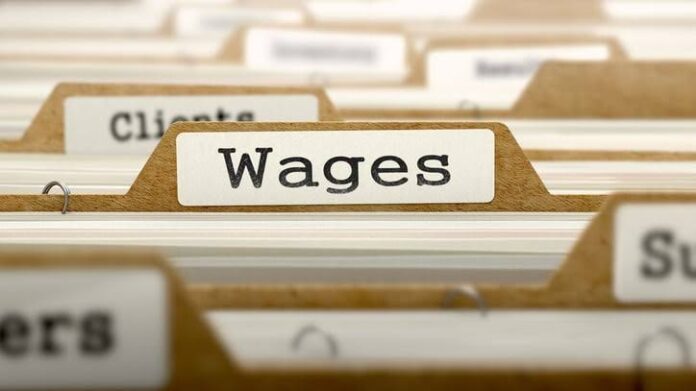Transparency International, TI, Industry operators and experts have questioned the operational integrity of the Nigerian National Petroleum Company Limited, NNPCL particularly Its transparency, efficiency, and overall management of the company national asset. The Head of Transparency International (TI) Nigeria and Executive Director of the Civil Society Legislative Advocacy Centre (CISLAC), Comrade Auwal Musa Rafsanjani, has called for a full-scale investigation into the Nigerian National Petroleum Company Limited (NNPCL).
This is coming after the revelation that the Warri Refining and Petrochemical Company have remained dysfunctional since January 25, 2025, partly due to safety issues in its Crude Distillation Unit Main Heater.
An April 2025 document on the Midstream and Downstream sector obtained from the Nigerian Midstream and Downstream Petroleum Regulatory Authority revealed that the refinery, which consumed $897.6m in maintenance costs, failed to refine Premium Motor Spirit (petrol) and was shut down barely a month after former NNPC Group Chief Executive Officer, Mele Kyari, declared it operational.
Industry operators and experts described this as disheartening, while further findings showed that the Port Harcourt Refining Company, which resumed operations in November 2024, has been operating below 40 per cent capacity.
It was learned that the 125,000 barrels per day capacity Warri refinery, which had been moribund for decades due to technical issues, and was purportedly revamped back to life by the national oil company on December 30, 2024.
Situated in Ekpan, Uwvie, and Ubeji areas of Warri, the petrochemical plant has an annual production capacity of 13,000 metric tonnes of polypropylene and 18,000 metric tonnes of carbon black.
While Briefing his team before the tour following the revitalization, Kyari claimed many Nigerians doubt such projects were real or possible in the country, but insisted the revitalization was genuine and visible.
Kyari said, “We are taking you through our plant. This plant is running. Although it is not 100 per cent complete, we are still in the process. Many people think these things are not real. They think real things are not possible in this country. We want you to see that this is real.
“I must congratulate our team for their determination and extreme belief that this company can restart this plant. This has brought the result we are seeing in collaboration with our contractors. We have proved that it is possible to restart a plant that you deliberately shut down. We have proved this.”
President Bola Tinubu applauded the NNPCL for completing the refurbishment of the 125,000-bpd capacity Warri refinery, which reportedly kicked off operations at 60 per cent capacity.
However, the document obtained exclusively from the NMDPRA, providing detailed production data for each refinery in the country, revealed that the Warri Refining and Petrochemical Company, with an installed capacity of 125,000 barrels per day, has remained shut since January 25, 2025.
The report linked the shutdown to critical faults in the refinery’s Crude Distillation Unit Main Heater, which raised safety concerns and forced a complete halt in operations.
Speaking on a television programme on the sidelines of the Spring Meetings of the World Bank Group (WBG) and the International Monetary Fund (IMF) in Washington, D.C., Rafsanjani said a thorough probe of the NNPCL’s operations is critical to promoting transparency, enhancing accountability, and ensuring that revenues from the oil sector are properly managed for the benefit of Nigerians.
However, Rafsanjani said, “It is a welcome development to have an audit of NNPCL. However, we are advocating not just for a financial audit, but also for physical and process audits. Only a comprehensive, multi-layered review can uncover systemic weaknesses and chart a course for genuine reform and revitalization of Nigeria’s oil and gas sector.”
According to him, “For NNPCL to function as a genuine commercial entity, free from political interference, the President must relinquish the role of Petroleum Minister. This will enable the company to operate independently and be subject to proper oversight from both the Presidency and the National Assembly. Otherwise, it risks continuing as a political spending tool rather than a strategic economic asset.”
He said that the 2018 report revealed a loss of N803.9bn (approximately $2.2bn) and that while stakeholders had hoped the transparency initiative would continue, it was nonetheless a significant milestone that should be built upon.
A petroleum expert, Bala Zaka, criticised the ongoing operations of state-owned refineries, stating that despite claims of functionality, Nigerians have yet to see any tangible benefits in the form of reduced prices for diesel, petrol, and other petroleum products
Zaka, speaking in a telephone interview said, “As far as I am concerned, the workability of any aspect of a country’s economy is supposed to be seen practically in the way and manner prices of goods and services come down. And as far as the output of the state-owned refinery is concerned, this objective has not been achieved. If the price of diesel, petrol, and other petroleum products doesn’t reduce, then all the technicalities don’t make any sense.
“If our state-owned refineries were truly functional as claimed by the government, by now, Nigerians should have seen a good and substantial reduction in the price of diesel, petrol, cooking gas, and other products. So far, these products have not reduced in price, there’s no technicality to prove that they were actually working since.”
However, the expert firmly rejected calls for the privatization of the refineries, emphasizing that member countries of the Organization of the Petroleum Exporting Countries successfully operate state-run refineries.
He insisted that the government must take comprehensive and decisive action to restore and maintain the full functionality of its own refineries, rather than relinquishing control to private interests.







